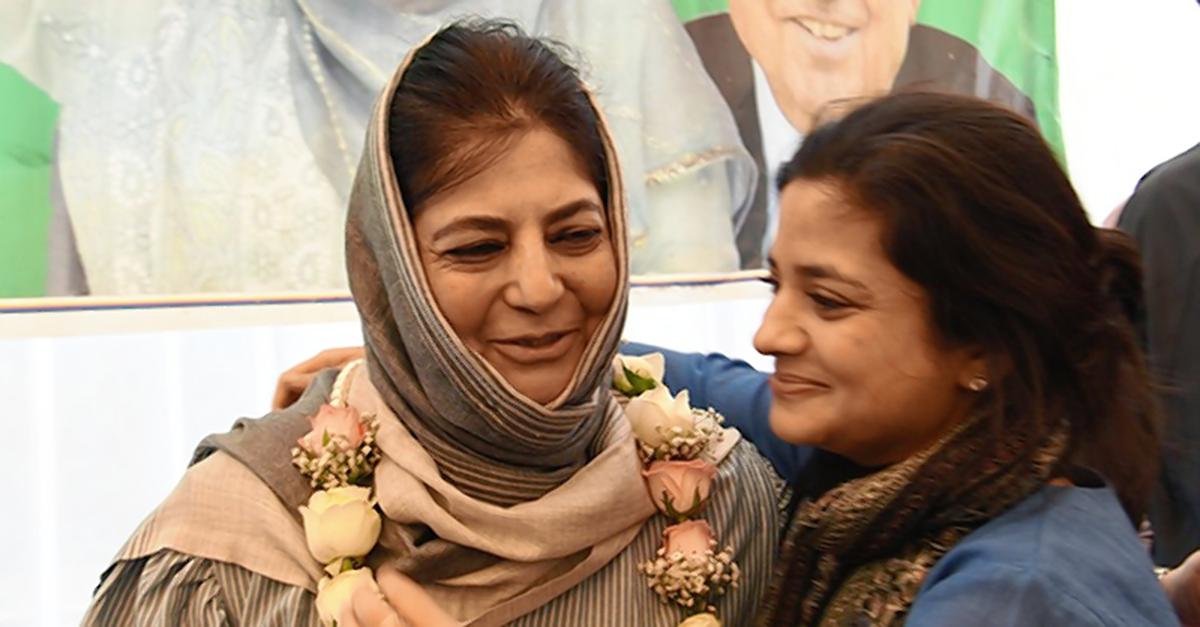Legacy in Motion: Abdullahs and Muftis Groom Next-Gen Leaders for Jammu and Kashmir
By: Javid Amin
In the ever-evolving political landscape of Jammu and Kashmir, two of the most influential families—the Abdullahs and the Muftis—are meticulously grooming the next generation to inherit and carry forward their political legacies. The National Conference (NC), led by the Abdullah family, and the Peoples Democratic Party (PDP), helmed by the Muftis, have played pivotal roles in shaping the region’s history and politics for decades. Now, amidst relentless challenges and a shifting political scenario, both families are strategically preparing their younger members to ensure continuity and relevance in the dynamic political arena of Jammu and Kashmir.
The Abdullah Family: Nurturing Future Leaders
The Abdullah family, synonymous with the National Conference, has been a cornerstone of Jammu and Kashmir’s political sphere since its inception. Dr. Farooq Abdullah, the patriarch, has been a dominant figure, serving multiple terms as the Chief Minister of Jammu and Kashmir and also as a Union Minister. His son, Omar Abdullah, has followed in his footsteps, taking on significant leadership roles, including serving as the Chief Minister.
Now, the focus is on the younger generation. Omar Abdullah’s son, Zamir Abdullah, is being gradually introduced to the political intricacies of the region. Although still young, Zamir’s involvement in political discussions and public engagements is seen as a preparatory phase for a more active role in the future. The Abdullahs, known for their deep-rooted connection with the people of Jammu and Kashmir, aim to pass on this legacy of public service to Zamir.
The Mufti Legacy: Empowering the Next Generation
Parallel to the Abdullahs, the Mufti family has been a significant political force through the Peoples Democratic Party (PDP). Founded by Mufti Mohammad Sayeed, the PDP has been a critical player in the region’s politics, advocating for peace, development, and reconciliation. After Mufti Sayeed’s passing, his daughter, Mehbooba Mufti, took over the reins, becoming the first woman to serve as the Chief Minister of Jammu and Kashmir.
Mehbooba Mufti is now preparing her daughter, Iltija Mufti, for a political career. Iltija, known for her articulate views and active social media presence, has been vocal on various issues concerning Jammu and Kashmir. Her engagement with the public and media indicates a strategic move to establish her as a future leader who can uphold and advance the PDP’s vision in the region.
Strategic Challenges and Opportunities
The efforts of the Abdullahs and the Muftis to pass the baton to the next generation come at a time of significant political turbulence in Jammu and Kashmir. The abrogation of Article 370 and the subsequent reorganization of the state into a Union Territory have dramatically altered the political landscape. Both the NC and the PDP have faced intense scrutiny and challenges in navigating this new reality.
Despite these challenges, the grooming of the next generation is seen as a crucial step in maintaining the political relevance and influence of both parties. By introducing Zamir Abdullah and Iltija Mufti to the political forefront, the families are not only preserving their legacy but also adapting to the changing dynamics of regional politics.
Case Studies: Legacy in Action
Case Study 1: Zamir Abdullah’s Public Engagement Zamir Abdullah’s recent interactions with youth groups and his presence at various community events highlight the strategic approach of the Abdullah family. These engagements are designed to familiarize him with the grassroots issues and the NC’s core constituency. By addressing concerns directly and participating in public discussions, Zamir is gradually building his political persona under the mentorship of his father and grandfather.
Case Study 2: Iltija Mufti’s Media Presence Iltija Mufti’s active engagement on social media and her public statements on critical issues reflect a modern approach to politics. Her vocal criticism of government policies and her advocacy for the rights of the people of Jammu and Kashmir resonate with the PDP’s core values. This media-savvy approach not only amplifies her voice but also positions her as a strong, informed leader ready to take on greater responsibilities.
The Road Ahead: Navigating a New Political Landscape
The transition of leadership within the Abdullah and Mufti families is not just about passing on a political mantle; it is about navigating a complex and evolving political environment. The new leaders must balance the rich legacies of their families with the contemporary demands of Jammu and Kashmir’s political scene.
Key Strategies for Success:
- Community Engagement: Both Zamir Abdullah and Iltija Mufti must continue to engage with their respective communities to understand the evolving needs and aspirations of the people.
- Modern Political Communication: Leveraging social media and modern communication tools will be crucial in reaching out to a younger demographic and addressing contemporary issues effectively.
- Policy Advocacy: Clear and strong positions on key issues such as economic development, human rights, and regional autonomy will help in building a robust political platform.
- Building Alliances: Forming strategic alliances with other political entities and civil society organizations can strengthen their political base and broaden their appeal.
A Legacy of Leadership and Resilience
As the Abdullahs and Muftis prepare the next generation to lead, they carry forward a legacy of resilience and dedication to the people of Jammu and Kashmir. Despite the challenges and the shifting political sands, their commitment to public service and regional development remains unwavering. The introduction of Zamir Abdullah and Iltija Mufti to the political arena marks the continuation of a legacy that has shaped the region’s history and will undoubtedly influence its future.
Bottom-Line: The Political Evolution of Jammu and Kashmir
The political evolution of Jammu and Kashmir is a testament to the enduring legacies of the Abdullah and Mufti families. Their strategic grooming of the next generation is a reflection of their commitment to the region’s socio-political fabric. As Zamir Abdullah and Iltija Mufti step into their roles, they bring with them a blend of tradition and modernity, ready to navigate the complexities of contemporary politics.



